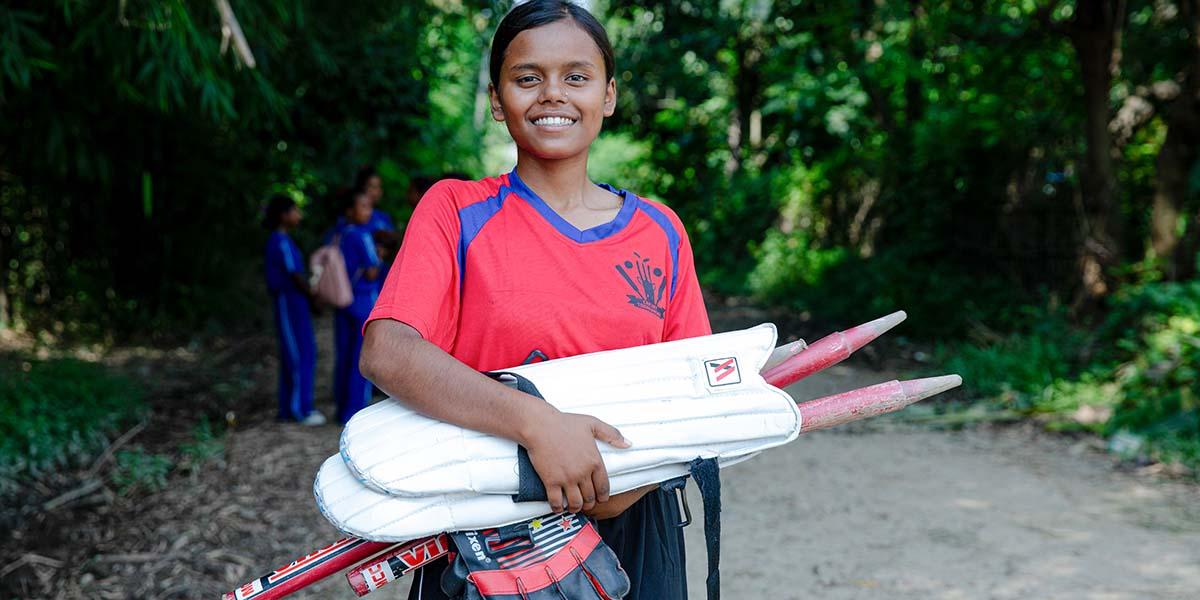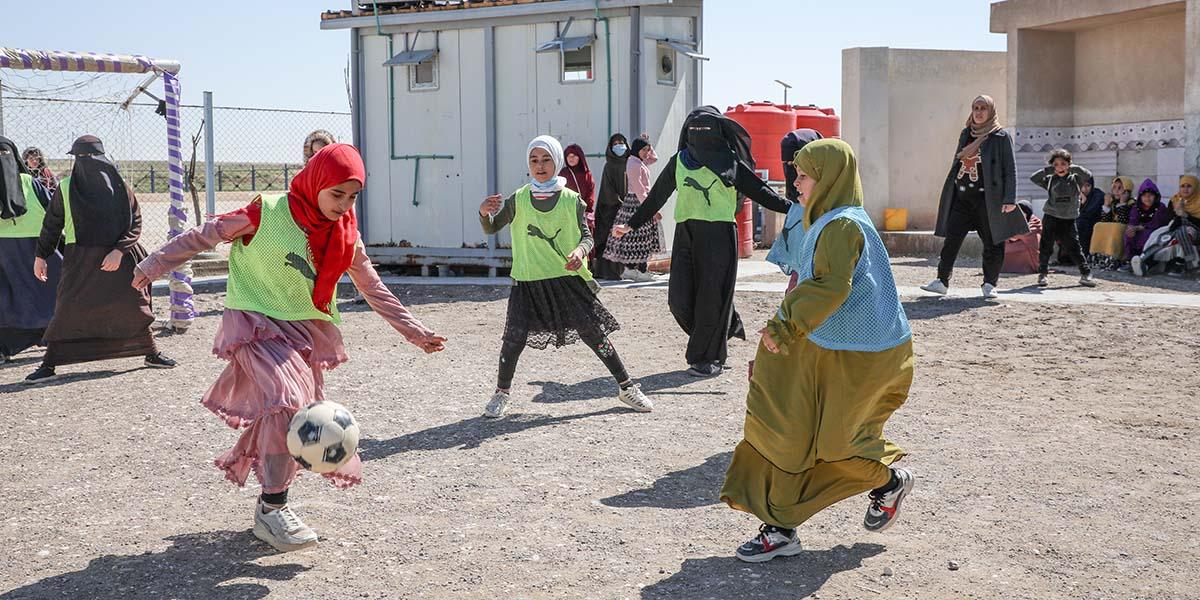Meet Some Future Gold Medalists!
The Paris Olympics started on July 26, 2024 and celebrate global excellence in sport.��
Sport is particularly important for children. In addition to the health benefits, it also gives them the opportunity to make friends and feel connected. Yet, too many children are missing out on the opportunity to take part in sport in a safe and enjoyable environment.��
That's why ��ɫ��Ƶhas joined Olympians and children to call for greater recognition of sport as an essential right for children. We spoke to former Olympians from around the world to learn about what sport means to them. ��Hear what these former Olympians had to say below, and meet some bright young athletes who may be the next future gold medalists!

Young athletes stand together with a soccer ball on a field in Uganda.
Physical activity including sport can benefit children’s mental health, improving mood and boosting cognitive function according to the . Yet many children around the world are unable to access sports and the associated benefits due to the poverty in which they live.��
In Uganda, ����ɫ��Ƶimplements different interventions that support the learning of kids like Kellon* and other children in his community. We provide scholastic materials, constructs classroom blocks, safe drinking water, and handwashing facilities to make playtime and learning friendly, enjoyable and safe.��

16-year old Ria* initially faced resistance from her parents and community in Nepal for her dream to play cricket.
Ria* initially faced resistance from her parents and community in Nepal for her dream to play cricket. Ria explains, “When we started to play cricket, some older boys used to say, ‘You won't achieve anything by playing. Go home, cook and eat’...But now...We practice here, go to other places to play, and we come back winning.”��
��ɫ��Ƶand its local partner formed the first girls' cricket team to combat child marriage. Said Ria: "When I play cricket, I feel strong. When I look at others playing, I feel nice that they got to play, and I got to play."
Inés Melchor (not pictured) from Peru, a long-distance runner who participated in the Athens 2004, London 2012 and 2016 Rio de Janeiro Olympics, said:��
"Sport is hugely beneficial for children and adolescents' physical and mental health. It combats stress and sets them on a good path for a healthy life. We need to value children's participation in sport and provide them with opportunities and encouragement to take part."��
Nikkita Holder from Canada, who participated in the 100-meter hurdles and the 100-meter relay in the London 2012 Olympics, said:��
“Sport is essential for children’s development, yet too many miss out. Every child has the right to participate in sports, but unfortunately, barriers such as poverty, gender discrimination and disability prevent many children from playing. As a community, it is our responsibility to break down these barriers and ensure that all children have the chance to experience physical and mental benefits of sports.”��
Since 2018, ��ɫ��Ƶand The Arsenal Foundation’s Coaching for Life program [2] has given almost 5,000 refugee children living in Za’atari refugee camp in Jordan the opportunity to play football. The program challenges gender inequality and encourages communities to support girls' participation in football – there are now an equal number of girls and boys taking part.��
��

Dana (left) and Abeer* play together with other girls playing football at Save the Children's Child-Friendly Space run by a local partner in a displacement camp in Northeast Syria.
Dana* (red hijab) is a 13-year-old Iraqi girl who has been living in a displacement camp in Northeast Syria since early 2019.��
She found particular joy in playing football and decided to overcome the traditional norms in the camp. She built her football team which consisted of five girls. It has become her favorite activity at the playground. While playing football she feels she breaks the traditional norms and feels freedom.
15-year old Rehab* (not pictured) is a junior coach with the Coaching for Life program, and initially faced resistance from some members of her community for participating in sport.��
She said: "They (the community) think that boys can play football, but girls shouldn't. They have the mindset that girls should stay at home, clean, and not go out for training or work. These beliefs are rooted in traditional norms and expectations."
